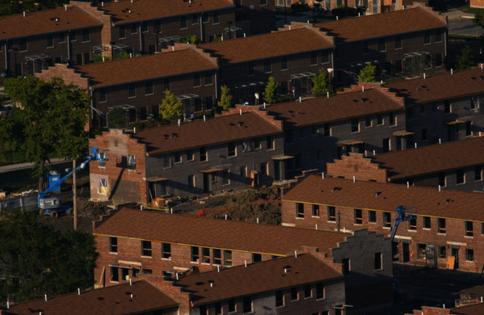Landmark Chicago public housing discrimination settlement extended
Published in Business News
A landmark public housing discrimination settlement in Chicago has been extended, giving the Chicago Housing Authority more time to complete development plans for public housing properties.
The case, Gautreaux v. Chicago Housing Authority, was a class-action lawsuit brought on behalf of public housing resident and community organizer, Dorothy Gautreaux, and it sought to end systemic racial discrimination in Chicago’s public housing. The lawsuit alleged CHA discriminated by concentrating poor black residents in high-rises in segregated communities and not allowing them the opportunity to move into public housing communities in white neighborhoods. The case went all the way to the U.S. Supreme Court, which sided with the residents and determined that they were being isolated to specific neighborhoods.
Attorneys for both sides negotiated a settlement in 2019, with CHA agreeing to continue developing scattered site housing and engage in discussions on how to improve the housing voucher mobility program. The settlement also called for CHA to provide a detailed schedule to complete mixed-income housing complexes, and create early learning childhood development programs at four existing public housing developments. The original settlement was to last for five years, and if CHA failed on its promises, it could return to court.
Both CHA and the plaintiffs returned to court recently , as they agreed there were outstanding requirements to be met at six development projects, according to a joint motion filed with the court Tuesday.
The extension, agreed to by both Impact for Equity (formerly known as BPI), the group representing the plaintiffs, and CHA, gives the housing authority more years to complete obligations outlined in the original settlement agreement and comes during a time when there continues to be a significant lack of housing, particularly a dearth of affordable housing, in Chicago. It also follows CHA’s controversial decision to lease some of its land, which formerly held public housing, for the Chicago Fire Football Club’s new training facility.
“We think this amendment is significant because it is part of what we think should be a significant focus on building housing, including building mixed-income housing on CHA land, as urgently as possible to meet that need,” said Cara Hendrickson, one of the attorneys representing the plaintiffs and executive director of Impact for Equity, a law and policy center focused on racial, economic and social justice.
According to the new terms of the settlement agreement, CHA will have one to three years, depending on the project, to complete certain development plans, including for Altgeld Gardens, Lakefront Properties, Madden/Wells, Rockwell Gardens, Stateway Gardens and Robert Taylor Homes. Both parties did agree, however, that CHA had met its obligations to build public housing in areas outside segregated Black neighborhoods, so the housing authority will no longer be subject to court oversight for that part of the agreement.
“This amendment recognizes the foundational work and long-term commitment of CHA and its various stakeholders in transforming the fabric of the city of Chicago,” said CHA CEO Tracey Scott in an emailed response to the Tribune. “By updating certain 58-year limitations on CHA’s investment options, this new era will enable CHA to partner to make greater investments on the South and West Sides, where our federal funding and organizational commitment are needed most. We have turned a page and commit to applying innovative, 21st century tools to create more mixed income communities and affordable housing.”
The case, which was filed in 1966 and became the longest-running housing discrimination case in the country, spurred CHA to build and renovate scattered-site housing throughout the city. It also shaped the Housing Choice Voucher Program, the primary federal housing voucher program, formerly known as Section 8, which allows public housing authorities to provide subsidies to low-income residents who find housing in the private market, including in more affluent neighborhoods.
About a week before the 2019 settlement was reached, nearly a dozen current CHA residents argued that it wasn’t time to end the suit. Because housing vouchers require units to be inspected and are limited in their cash value, voucher holders often face discrimination in the private market, residents told the judge. Most can’t afford to use their vouchers in affluent communities and still end up concentrated in poorer neighborhoods.
At the same time, some housing advocates accused lawyers representing the plaintiffs of failing to address the concerns of actual CHA residents and cutting them out of any decision-making when it came to their future.
for public housing residents since the case was filed in 1966, there is still much work to be done in 2024. Hendrickson’s group published a report earlier this year calling on CHA to move faster in its building of public housing.
“This will be a new era for the city of Chicago, and so it will require all stakeholders to really continue to be focused on ensuring that we continue to live up to our fair housing obligations in the development of housing across the city,” Hendrickson said.
(Chicago Tribune’s Jason Meisner contributed.)
©2024 Chicago Tribune. Visit at chicagotribune.com. Distributed by Tribune Content Agency, LLC.












Comments